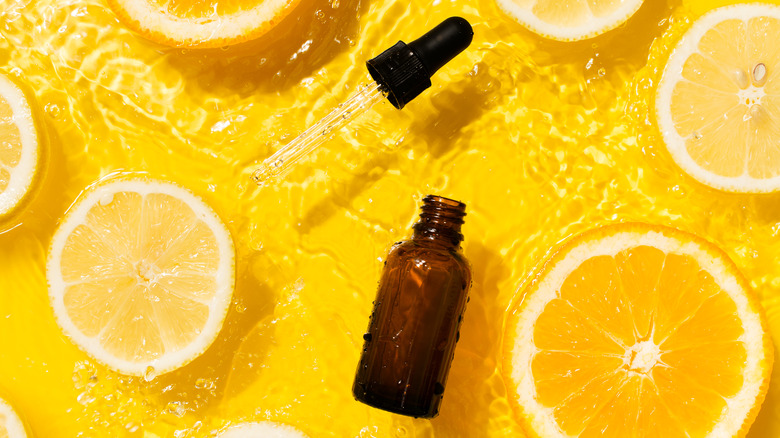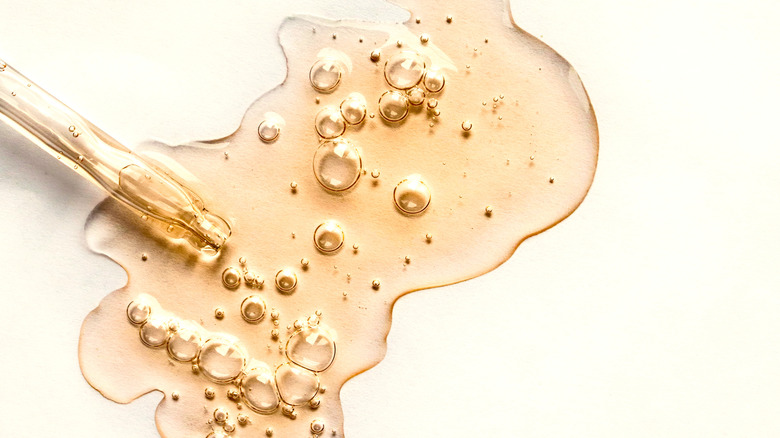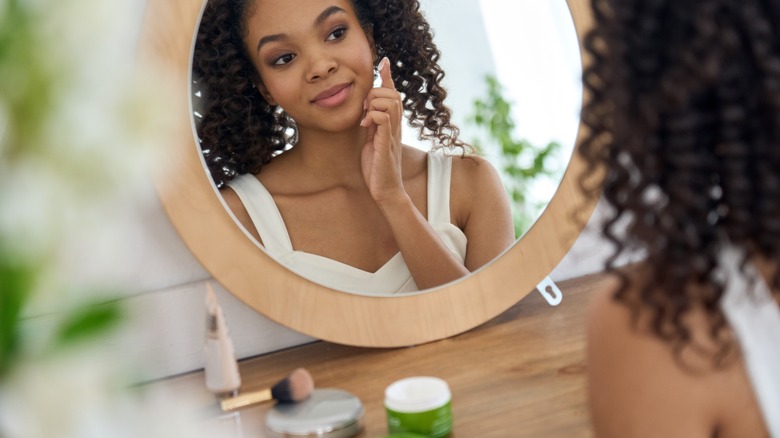The Ideal Vitamin C Percentage For Your Skincare Products
You can find vitamin C in almost every beauty regimen and anti-aging product. It is a powerhouse ingredient said to promote collagen and brighten skin. Given that vitamin C is so beneficial, you might be tempted to swap your water for orange juice. However, even if you created an orange slice face mask, your skin wouldn't absorb vitamin C in that manner.
Dietary intake of vitamin C is suitable for the internal needs of the nutrient. However, less than 7% of that nourishment reaches the skin, with very little, if any, going as far as the epidermal layer. The best way to reap vitamin C's anti-aging and sun protection benefits is through topical skincare products. With hundreds of options, it is difficult to know which is right for you. Luckily, we're know the ideal vitamin C percentage for your skincare and how best to use it.
Less is more when it comes to vitamin C
It may seem like the greater the percentage of vitamin C, the more effective it'll be, but that isn't actually the case. According to The Derm Review, as little as 8% vitamin C concentration will deliver skincare benefits. Skincare products typically range from 5% to 20% saturation of vitamin C, while some outliers even have more. However, cosmetics on the higher end of this spectrum can be too harsh for the skin. It can cause irritation, redness, and itchiness. With more than 20% of active vitamin C, the skincare benefits do not outweigh the harm.
For sensitive skin, look for vitamin C products with vitamin E. Vitamin E is a stabilizer for vitamin C and helps to calm any discomfort it may cause the skin. Vitamin C in the form of L-ascorbic acid can also be harsher than in its form of magnesium ascorbyl phosphate. Those with sensitive skin or who are easing into using vitamin C may want to start with the latter. However, either formula is simple to add to your skincare routine.
How to add vitamin C into your skincare regime
After SPF, vitamin C is a universal skincare must-have. It fights against skin aging caused by the sun, hyperpigmentation, inflammation, and helps with tissue repair. Pair it with other cosmetics that meet your skin needs to maximize its benefits. A research study published in the Indian Dermatology Online Journal found that using Vitamin C in conjunction with 20% glycolic acid improved the appearance of stretch marks after just three months. You can use vitamin C together with sunscreens, tretinoin, antioxidants like retinol, and alpha hydroxy acids such as malic acid.
Vitamin C should be a part of your morning and night regime. A serum is the way to go for the most vitamin C absorption. To apply, add an even layer of vitamin C serum to your freshly cleaned and dried face and neck. There are also toners, sunscreens, moisturizers, and other skincare products infused with vitamin C.
When buying serums, look for the markers that you're getting an effective ingredient. There should be no more than 20% vitamin C concentration, and it should be in an airtight, dark glass bottle. Vitamin C is sensitive to light and air. Improper packaging can reduce its strength. If it's your first time trying out vitamin C or a particular serum, perform a patch test to ensure the product and your skin are a match.


